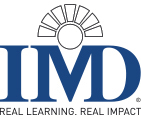- Strategy
Finessing the Family Enterprise
Moonshot opportunities and insights from multigenerational family enterprises
What defines a ‘family business’? Peter Vogel, Professor of Family Business and Entrepreneurship, holder of the Debiopharm Chair for Family Philanthropy and Director of the Global Family Business Centre at IMD, the Swiss business school, mentions that this is sometimes not straight-forward to answer and that you might get somewhat different answers depending on who you ask. His preferred definition is “a business that is dominantly controlled by a family with the intention to sustain that control across generations.”
He illustrates his statement based on the example of Facebook. Facebook is often placed in Family Business rankings (e.g., the CS Family 1000 Ranking), as Mark Zuckerberg’s father, sister and other family members are shareholders too; but he disputes whether this is sufficient to make it a family business, as the second element is not – yet – enacted. The next generation is simply too young to tell whether there will – ever – be an intention to pass the control of the business on to them. This might change in some 15-20 years from now, of course, when many tech companies that were formed during the 4th industrial revolution will certainly also qualify as a family business under Vogel’s definition.
Many of the oldest family businesses are to be found in Japan, where a number of hotels, restaurants, and religion-related entities have been owned and run by the same family for over 1300 years. While these do clearly fit the definition and there are many lessons to be learned from them in terms of maintaining family control across centuries, Vogel’s research and advisory work primarily focuses on those family businesses that have not only managed to survive for centuries, but also manage to maintain a globally prominent position in their industry(ies). These successful multi-generational family enterprises are a unique set of businesses and he finds that there are even more interesting lessons to be learned from them, such as how they approach family, business and ownership governance, their desire for entrepreneurial renewal in each generation, their succession strategies, having a strong equity base (being less indebted), strong family unity and strategic foresight.
It is commonly agreed in the field that approximately two-thirds of the world’s businesses are family-controlled businesses – from the ancient Japanese inns to the likes of Walmart, VW and Berkshire Hathaway – and this makes the sector hugely relevant, as not only does it mean that most people probably work in a family controlled business, but the thinking and challenges those businesses currently face are now becoming more central issues for many non-family businesses too. Long-termism, sustainability, financial independence and purpose are just a few of the keywords that pop up when you ask non-family business executives what they find so intriguing about family businesses.
The core difference between family and non-family businesses, from a management perspective, is probably the focus on governance. In non-family businesses there is little difficulty distinguishing who are the owners, who the Board members and who the executive team; with family-controlled businesses these three can overlap and blur, causing less clear lines of decision-making and the opportunity for limiting transparency. As Vogel explains “the annual general assembly, the board meeting and the top management team meeting can all happen on a Sunday over lunch, with the patriarch or matriarch taking the ultimate decisions on everything ranging from strategic acquisitions to the colour of the curtains in the entrance hall of the new HQ.” This has both positive and negative effects. It means that decisions can be taken very quickly, it can work to keep the various stakeholders informed and involved – but equally it can cut people (who are not at lunch) out of the loop and prevent effective analysis of new ideas and processes. “So, they decide management things at the same time as deciding ownership things, and many families struggle in really professionalizing their business-related governance. They struggle to be disciplined about what are ownership decisions, what are board decisions and what are management decisions.” Offering advisory and trusted learning guidance on governance is something that Vogel and the Global Family Business Center at the IMD are focused on, by leveraging their 31-year experience in working with business-owning families and their boards and executives, by bringing a wide range of both theory-based, but more practice-based experience to their delivery, working with families over long periods.
A second major differentiating factor is the time-horizon that family-controlled businesses work to, compared to listed companies. It is well recognised that family-controlled firms tend to be more patriarchal (or in plenty instances, matriarchal) and display a stewardship approach where the objective is long-term returns, not maximising immediate return. In the current business era, when sustainability is the new mantra, this brings many advantages. It makes sense to invest in projects where the return on investment may be counted in decades rather than a handful of years, if you are not under the constant threat of being bought. If part of your management focus is on maintaining and strengthening the communities you work in and draw from, then social investment makes sense in the long-run too – while it may be difficult to convince a financial analyst of such expenditure, especially if they sit in an office half-way around the globe from where the decisions are making the impact.
But Vogel also sees the focus on longer-term horizons as offering opportunities to family-controlled businesses in the innovation and investment space. Overall, he observes an increase in direct investments by families (often via their family offices) and long-term oriented family investors can tap into opportunities that are simply not that predictable for traditional investors such as VCs. If you look at some moonshot technology startups with a lot of uncertainty regarding their business model’s desirability, feasibility and viability, the amount of funding needed as well as the time it will take until they can hit the market or break-even, traditional investors might shy away given that they most likely have investment horizons of only a few years (e.g., a VC setting up a dedicated fund over 10 years, with expected returns thereafter). But if you look at technology firms such as the carbon-capture start-up Climeworks, they don’t think in a few years but rather in decades – similar to a family business. “A quarter in a non-family firm is three months, for family businesses it can be 25 years” says Vogel.
This flexibility of thinking around financial versus social returns, Vogel explains is one of the many dichotomies/challenges that family businesses have long been confronted with, that are increasingly becoming mainstream across all businesses. Tradition versus disruption is another, which can be particularly emotive as management shifts generations; meritocracy versus inclusion – who in the family gets the power positions, is it decided by ability or position? The more you dig into the modus operandi of family firms the more complex they become – which is why Vogel relishes his new role in charge of the Global Family Business Center at IMD, and why family businesses are hungry for the knowledge and robust discussions that he and his team can offer them.
IMD is a top-ranked business school, expert in developing leaders, transforming organizations and creating immediate and long-term positive impact.
ARTICLES YOU MIGHT LIKE
BOOK REVIEW
A provocative new book reveals the downside of strategic and organizational change and the benefits of stability
DEVELOPING LEADERS QUARTERLY MAGAZINE AND WEEKLY BRIEFING EMAILS


































